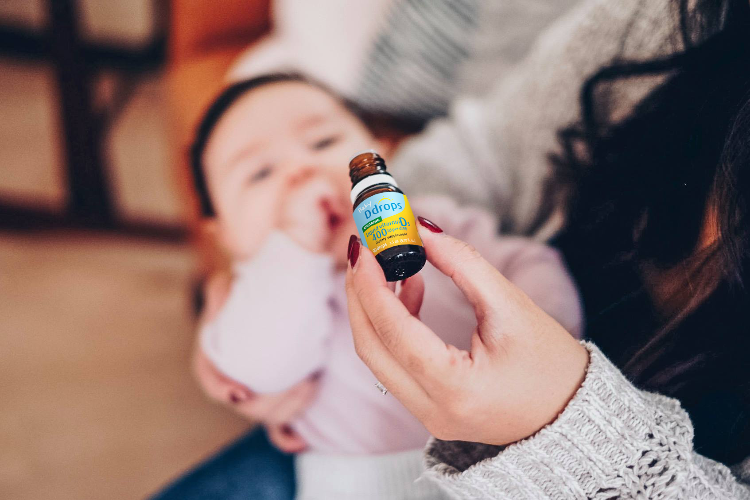January 11, 2017
Many breastfed infants may not be getting enough vitamin D, a study suggests.
The study, published in the January/February 2017 issue of the journal Annals of Family Medicine, surveyed 140 mothers who exclusively breastfed their infants and 44 mothers who gave their infants a combination of breastmilk and formula. All of the participants received care at the Mayo Clinic in Rochester, Minnesota, where the study was conducted.
Some findings from the study:
- 55 per cent of the mothers stated they had given their infants vitamin D supplements in the past week, and just 42 per cent said they had given their infants the recommended 400 IU of vitamin D per day.
- The majority of the mothers surveyed (88 per cent) preferred supplementing themselves, rather than their infants.
- Of the mothers, 138 (76 per cent) were taking a multivitamin with vitamin D.
- 57 per cent preferred daily to monthly supplementation.
Researchers ultimately found that most did not give a daily vitamin D supplement to their babies. But why?
Some of the reasons moms didn’t give vitamin D supplements to their infants were:
- Lack of knowledge about supplementation
- Assumption that fortified milk provides the infant with needed vitamin D
- Assumption that breast milk provides the infant with needed nutrition
- Inconvenience/dislike
The American Academy of Pediatrics recommends that breastfed infants, as well as those who are fed a combination of formula and breastmilk, receive 400 IU of vitamin D daily, beginning in the first few days of life. This is because breast milk has low levels of vitamin D. The AAP also advises that infants younger than six months avoid direct sun exposure. Inadequate levels of vitamin D in infants and children can lead to rickets. in this study, 73 per cent of the parents were recommended to give vitamin D by their clinician, but only 55 per cent followed this advice.
This study showed that 76 per cent of mothers were taking a multivitamin that contained vitamin D. Multivitamins typically contain 400-600 IU. However, the authors comment that higher doses of vitamin D (4000-6400 IU/d or a single monthly dose of 150,000 IU) for mothers can provide enough vitamin D in breastmilk for nursing mothers, preventing vitamin D deficiency in their infants without signs of toxicity. The researchers concluded that having mothers take additional vitamin D supplements might be an option to make sure that infants are getting enough vitamin D.
Baby Ddrops® liquid vitamin D supplement is a great solution for babies – just one drop, no taste, and easy to work into your daily routine! This can help parents stay on track with their healthcare practitioners’ advice.
[1]Annals of Family Medicine. www.annfammed.org. Vol 15, no 1. January/February 2017.




Tinggalkan komentar
Situs ini dilindungi oleh hCaptcha dan berlaku Kebijakan Privasi serta Ketentuan Layanan hCaptcha.